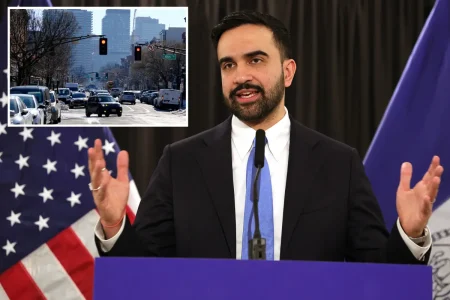Israel’s Military Service Reform: Navigating the Delicate Balance Between Security Needs and Societal Values
Proposed Legislation Sparks National Debate on Military Recruitment and Social Equality
The Israeli government’s introduction of a new military service bill has ignited a passionate national conversation that cuts across political, religious, and social lines. The proposed legislation, aimed at addressing the Israel Defense Forces’ (IDF) growing recruitment challenges, has become a lightning rod for both criticism and support. While government officials champion the bill as a necessary evolution of Israel’s defense strategy, the response has been far from unanimous, with voices from across the political spectrum expressing concerns about its effectiveness and implications.
In a country where military service has long been considered a cornerstone of national identity, the debate touches on fundamental questions about citizenship, security, and the distribution of civic responsibilities. Defense Minister Yoav Gallant described the bill as “a balanced approach that acknowledges both our security realities and our complex social fabric.” The legislation aims to broaden the base of military service while providing alternative pathways for communities that have historically received exemptions. However, the reception has been mixed, with security experts, religious leaders, and civil rights advocates weighing in on what many consider to be one of the most consequential policy discussions in recent years.
The Recruitment Crisis: Understanding the Numbers Behind the Controversy
Israel’s military faces an unprecedented recruitment shortfall that has security officials increasingly concerned. Recent data from the IDF Personnel Directorate reveals that only 69% of eligible Israelis are currently serving in the military, down from 75% a decade ago. This decline comes at a particularly challenging time for Israel’s security apparatus, with regional tensions escalating and the military stretched across multiple fronts. Colonel (Res.) Michal Shalem, a military analyst at the Israel Institute for National Security Studies, explained: “We’re looking at a perfect storm of demographic changes, shifting values among younger Israelis, and increasing security challenges that require a robust and well-staffed military.”
The proposed legislation aims to address this shortfall by modifying the long-standing exemptions for ultra-Orthodox (Haredi) men, who currently make up approximately 13% of potential recruits but are largely absent from military service due to religious exemptions dating back to the founding of the state. Additionally, the bill introduces new incentive structures for voluntary service and creates alternative national service pathways for those unwilling or unable to serve in combat roles. Economic projections suggest that increasing Haredi participation in either military or civilian service could add billions to the economy while addressing critical personnel shortages in both security and public service sectors. However, critics question whether the voluntary approach will produce sufficient numbers to address the growing gap between Israel’s security needs and available personnel.
Critics from the Right: “Too Little, Too Late”
Some of the most vocal opposition to the bill comes from military veterans and security hawks who argue that the proposed changes don’t go far enough to address the recruitment crisis. “This bill is a band-aid on a gunshot wound,” said retired Brigadier General Avigdor Kahalani, who has been lobbying for stricter conscription laws. “The security challenges Israel faces require decisive action, not half-measures designed to avoid political conflict.” These critics point to the voluntary nature of the expanded service options for previously exempt communities, arguing that it will fail to generate meaningful numbers of new recruits.
The right-wing criticism focuses particularly on the bill’s approach to ultra-Orthodox exemptions, which they view as perpetuating inequality in the burden of national defense. Polling indicates that 72% of secular Israeli Jews believe that all citizens should share equally in military service obligations, regardless of religious practice. Nadav Cohen, leader of the “Equal Service” advocacy group and a veteran of the 2014 Gaza conflict, articulated this frustration: “My soldiers came from every background—Druze, Bedouin, religious, secular—but one group was noticeably absent. How do I explain to my children that some Israelis are too special to defend their own country?” These critics argue that anything short of universal conscription undermines both military readiness and the social contract that has defined Israeli society since its founding.
Concerns from the Left: “The Path to Forced Service”
On the other side of the debate, progressive and civil liberties organizations express concern that the bill represents the beginning of a slippery slope toward forced conscription for communities that have historically been exempt. “What starts as ‘encouraged’ service with economic incentives today will become mandatory service with criminal penalties tomorrow,” warned Tamar Zandberg, former leader of the left-wing Meretz party. These critics point to provisions in the bill that establish recruitment targets that, if not met voluntarily, could trigger more coercive measures in subsequent legislation.
The concern extends beyond the ultra-Orthodox community to Arab citizens of Israel, who are currently exempt from mandatory service but can volunteer. Some Arab community leaders fear that the precedent set by pressuring the ultra-Orthodox community could eventually extend to their constituencies. “This legislation frames military service as the primary expression of citizenship,” noted Ayman Odeh, a prominent Arab-Israeli politician. “This is deeply problematic in a diverse society where different communities have different relationships with the state and its institutions.” Civil liberties organizations have also raised concerns about the bill’s economic incentives structure, which they argue effectively penalizes communities that don’t participate in military service, potentially deepening socioeconomic divides rather than bridging them.
The Religious Dimension: Balancing Tradition and Civic Duty
At the heart of the controversy lies the complex relationship between Israel’s religious communities and the modern state. For many in the ultra-Orthodox community, full-time Torah study is not merely an occupation but a sacred calling that serves the spiritual protection of the Jewish people. Rabbi Yitzchak Goldknopf, leader of the United Torah Judaism party, defended the traditional exemptions: “The study of Torah has protected the Jewish people for thousands of years, long before there was an IDF. This spiritual service is no less valuable than military service.”
The new bill attempts to navigate this sensitive terrain by creating military units that accommodate religious observance and alternative national service options that would allow for continued religious study. However, implementation challenges remain substantial. Military service often places young adults in environments that conflict with strict religious observance, from mixed-gender integration to scheduling conflicts with prayer times and Sabbath observance. Professor Yedidia Stern of the Jewish People Policy Institute suggests that the debate reflects deeper questions about Israel’s identity: “This isn’t simply about who serves in the military. It’s about whether Israel defines itself primarily as a security state where military service is the highest form of citizenship, or as a Jewish state where religious study and practice are equally valued expressions of national contribution.” Finding a model that honors both security needs and religious values remains one of Israeli society’s most challenging balancing acts.
Seeking Common Ground: Paths Forward in a Divided Landscape
Despite the heated rhetoric surrounding the bill, there are signs that compromise positions might be possible. Moderate voices from religious, security, and civil society sectors have begun exploring frameworks that could address the legitimate concerns on all sides. Proposal architect and former IDF Chief of Personnel Moti Almoz emphasized that “security and social cohesion are not competing values—they’re complementary. We need solutions that strengthen both.” These middle-ground approaches focus on gradually expanding service options while respecting community autonomy and creating meaningful alternatives to traditional combat roles.
Public opinion research suggests that beneath the polarized debate, most Israelis across the political spectrum share common ground: they want a system that is both fair and effective. A recent Israel Democracy Institute study found that 83% of Israelis support some form of national service requirement for all citizens, though they differ on whether that service must be military in nature. As the legislative process continues, the bill will likely undergo significant modifications to address concerns from various stakeholders. Whether these changes will be sufficient to bridge the deep divisions remains uncertain. What is clear, however, is that how Israel resolves this tension between security imperatives and pluralistic values will shape not just its military readiness, but its social fabric for generations to come. In the words of President Isaac Herzog, who has called for dialogue on the issue: “How we share the burden of our common security will determine not just how we defend our state, but what kind of state we are defending.”







